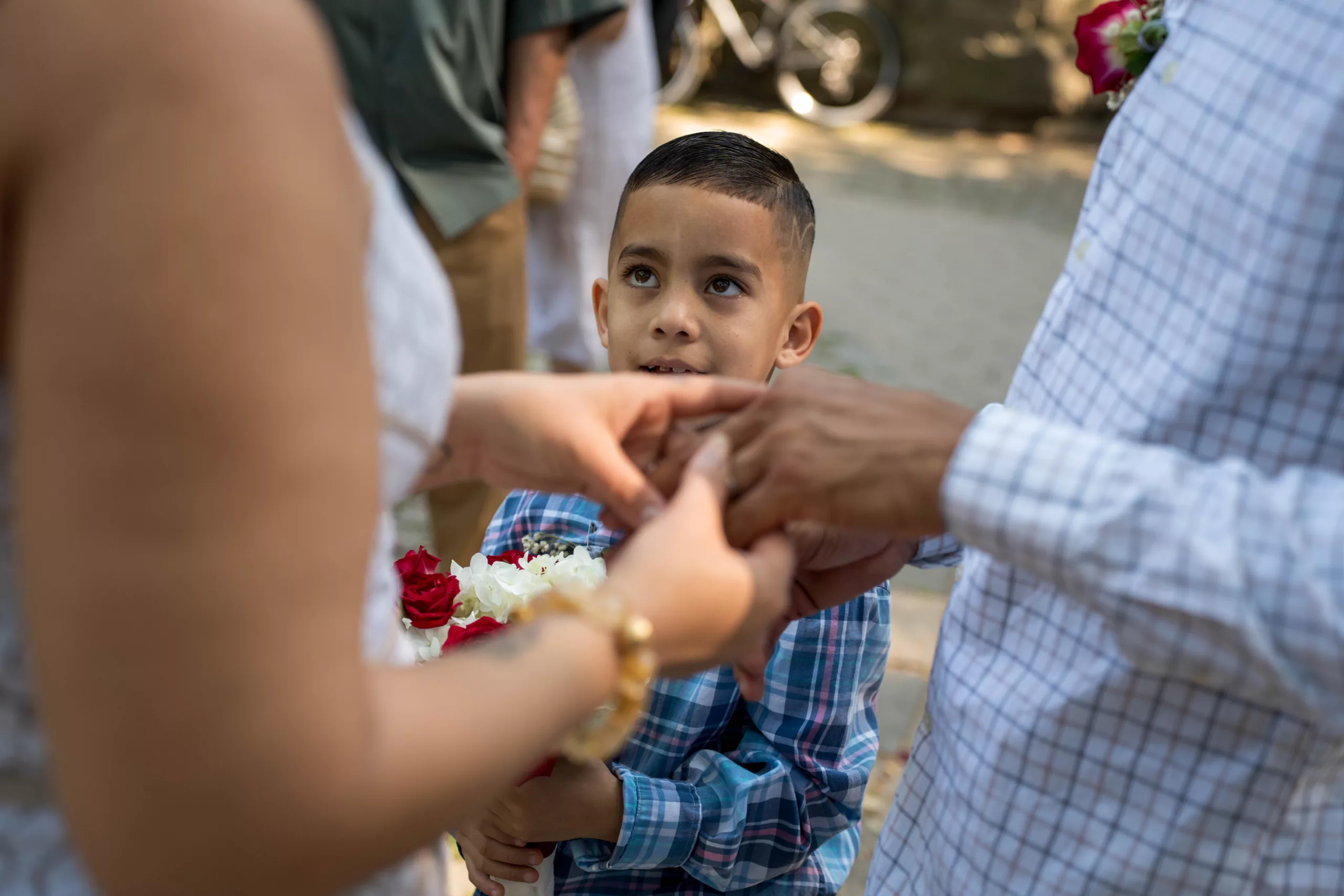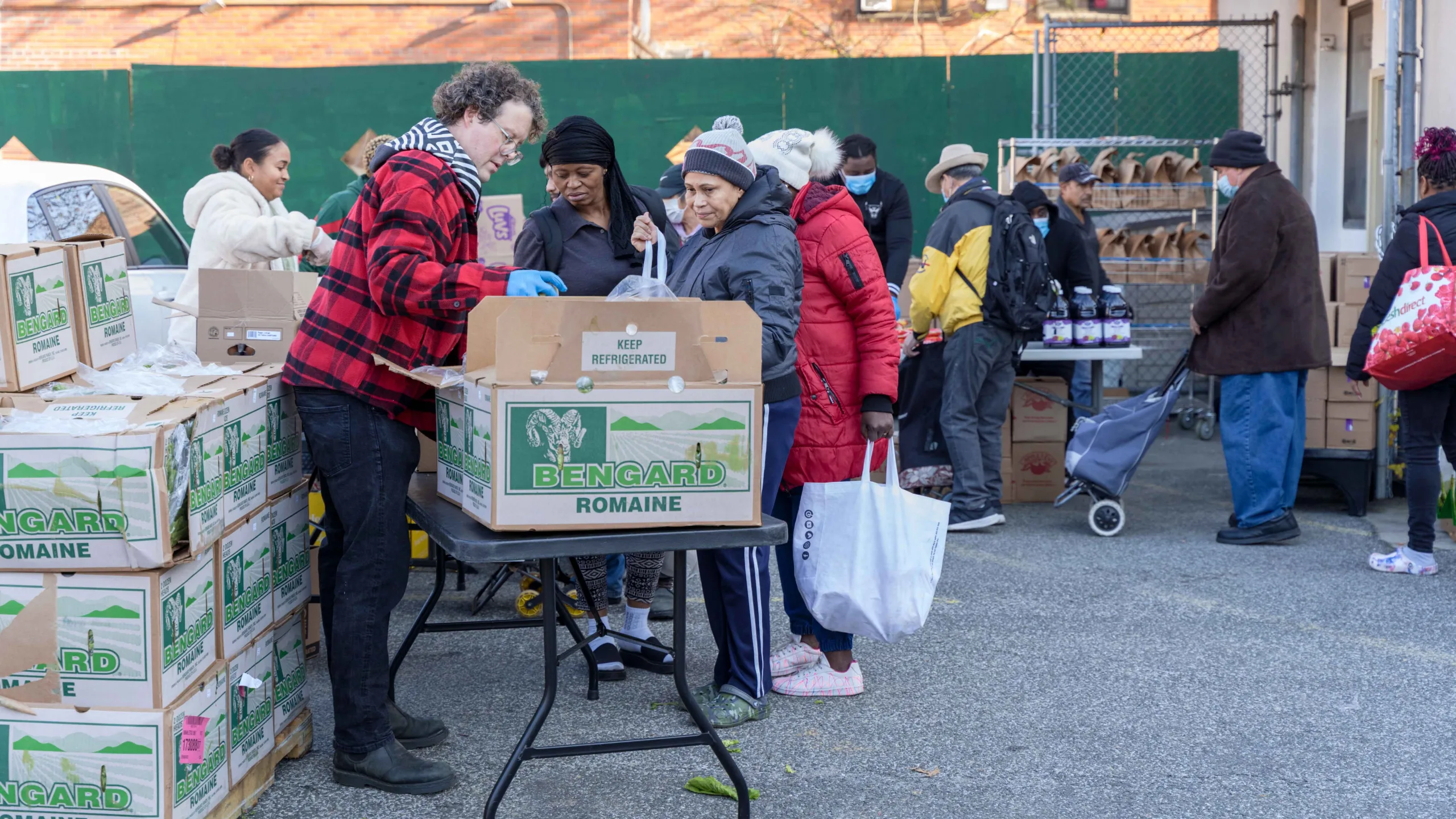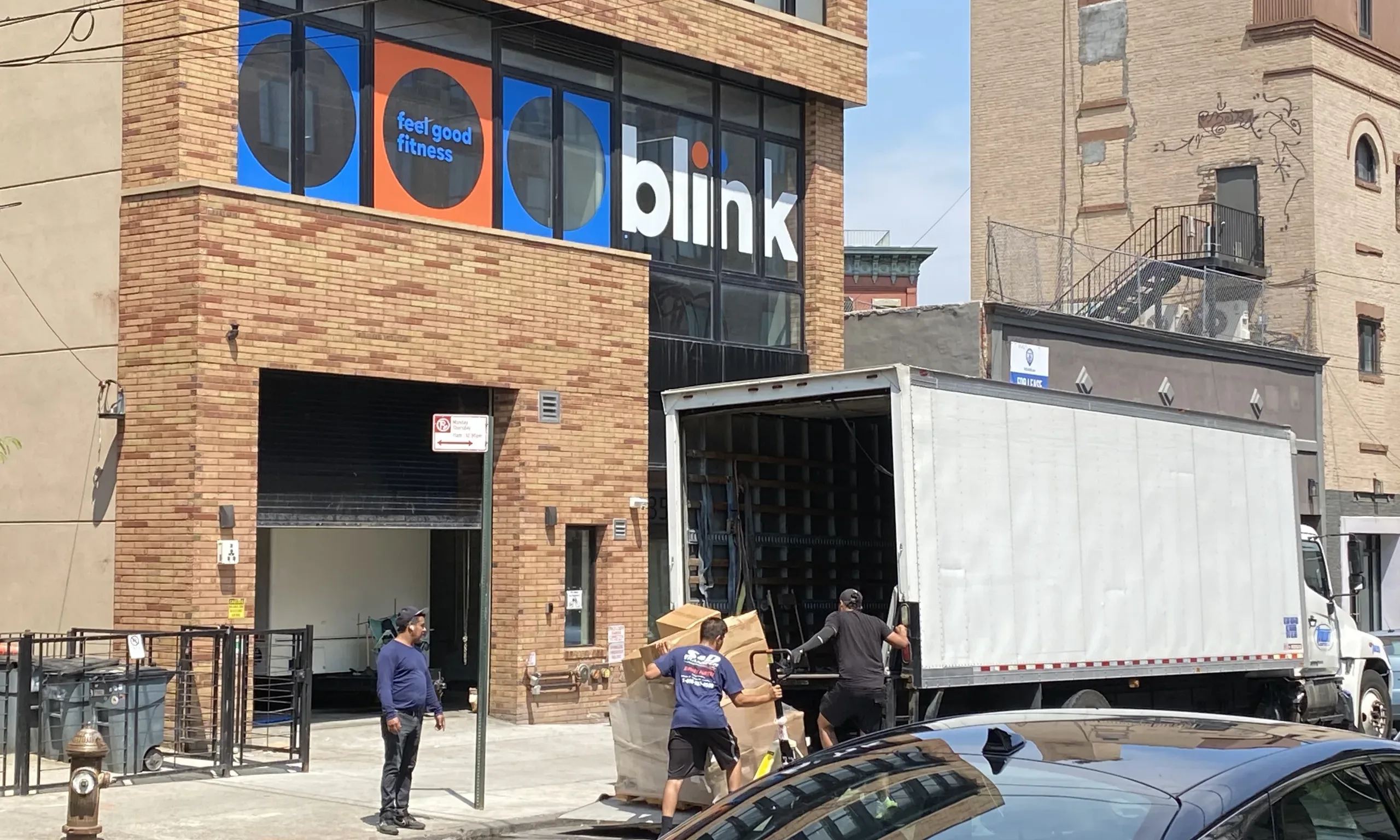As José Zambrano and Jennifer Rodriguez kissed in front of the arch at Carl Schurz Park, in Manhattan, their 7-year-old son, Lian, looked at them with his mouth wide open, his cheeks flushed with a mix of jealousy and amusement.
The thunderous clap of the officiant, and five witnesses of the nonprofit the Little Shop of Kindness helped seal the matrimony of his newly wed parents who had come 2,950 miles away from their native town of Manabí, in Ecuador. The celebration that sunny afternoon of May 22 was filled with joy, community, and a sense of calm that contrasted starkly with the struggles the newly wed couple had faced when they embarked on a journey to seek asylum in the United States four months ago.
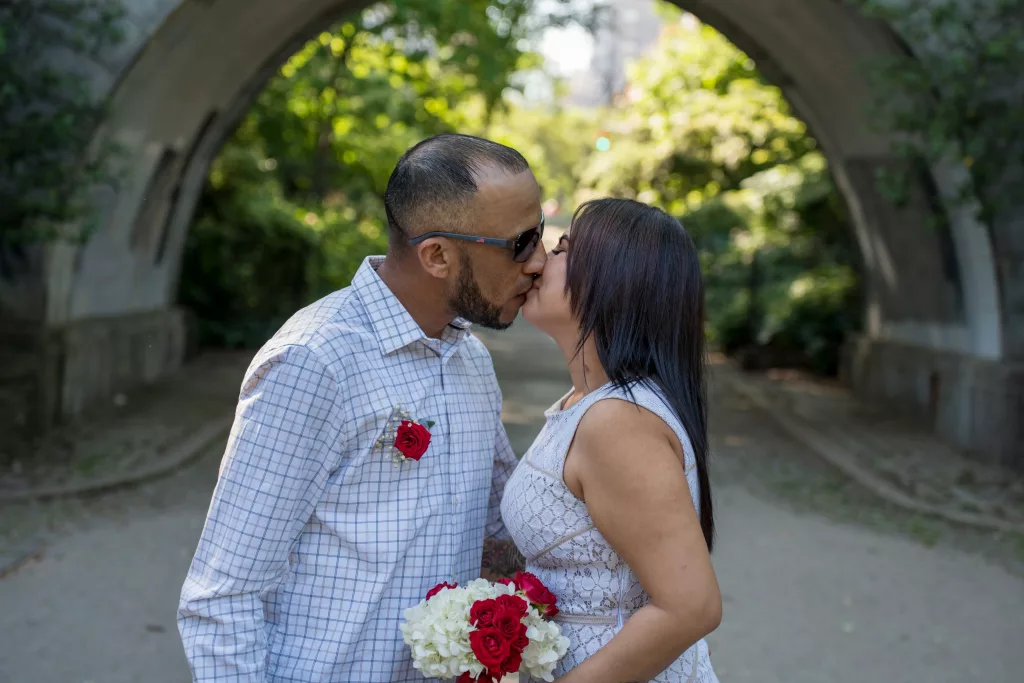
Zambrano, 36, and Rodriguez, 30, are among thousands of asylum seekers who’ve arrived in New York City over the past two years, many without friends or family to lean on. But the Little Shop of Kindness, founded two years ago to help migrants find basic resources and essentials, goes the extra mile to welcome the city’s newest neighbors with heartwarming touches, including personalized wedding ceremonies.
Also Read: How To Get Married in NYC
When Zambrano, Rodriguez and Lian, made their way from the Watson Hotel in the Upper West Side to the Little Shop of Kindness that afternoon, they assumed they would just sign some documentation, similar to how marriages are traditionally done at City Hall.
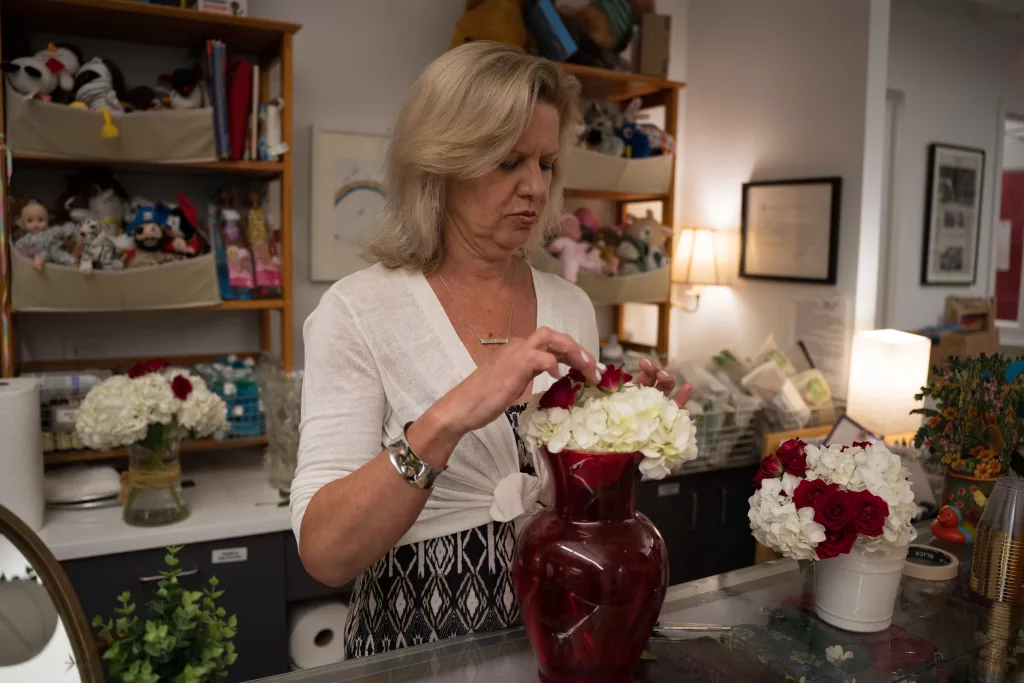
But as they arrived at the organization’s building, they noticed a big smile on the security guard’s face at the entrance. Zambrano said the guard’s smile hinted that something good was about to happen. They were not surprised, however, because just a week ago, when they had visited the shop to ask for a dress for Rodriguez, they were suddenly offered a wedding ceremony and a thin-banded, oval-shaped silver diamond ring.
“My heart started racing and it then hit me when I saw the people at the shop,” Zambarno told Documented in Spanish.
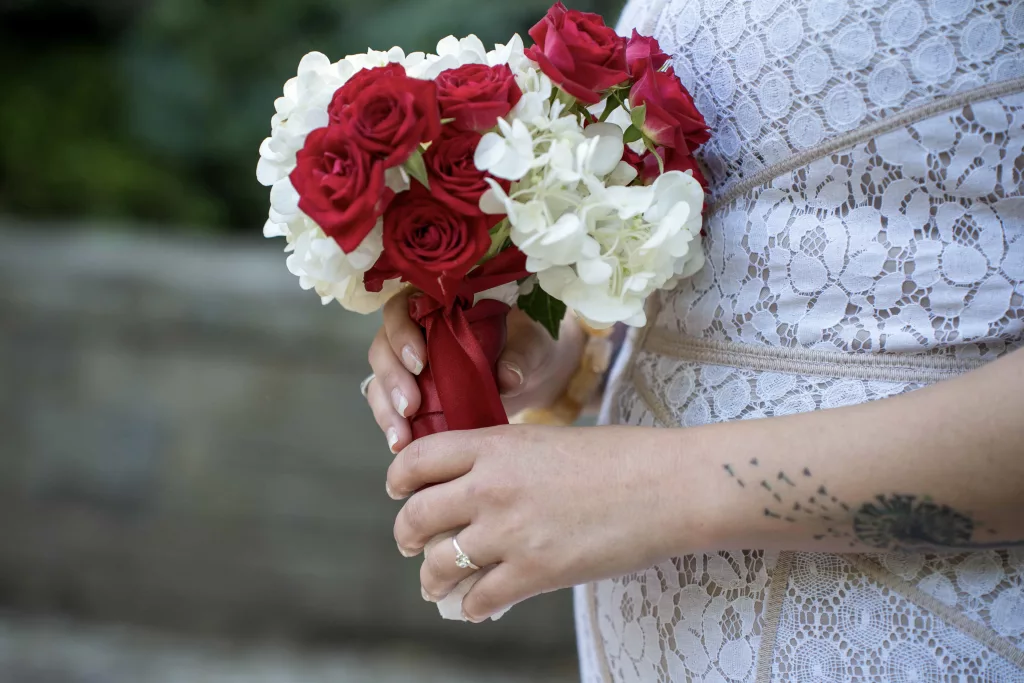
The family left Ecuador in January of this year, fleeing extortion and threats in the place where he worked. “My son was a warrior. He walked the jungle and did not need help until the very end,” Zambrano said, recalling that it made him sad when Lian asked him when the journey would finish as they were crossing the Darién Gap.
When they arrived in Mexico, the family did not have any money and slept on the streets multiple nights. Zambrano worked in Mexico for one month at a Chinese manufacturing company to save up for traveling costs to make it to the U.S. and Mexican border, he said, where they submitted themselves in March.
“We suffered a lot,” he said. ”Despite the fact that we were not victims of kidnappings or anything like that.”
Dignifying moments
In New York City a family friend was supposed to take them in but canceled at the very end. The friend would not pick up the phone, so the Zambrano family sought shelter at the Roosevelt Hotel, before being sent to the Watson, where they now reside.
Lian attends school and is an avid soccer player. Both Zambrano and Rodriguez have been looking for work as they start their asylum claims and wait to file their work permits. “It’s hard to work without the work permits,” Zambrano said, adding that he has been finding unstable gigs as a day laborer.
He said it is the suffering that he has encountered in the journey, along with the aid he was given by strangers, that makes unexpected moments like that of the wedding ceremony that more special. The couple had already planned to marry, and Rodriguez went to the Little Shop of Kindness to look for a dress to wear to the wedding. But when they got there, the shop told them that they could also officiate their wedding.
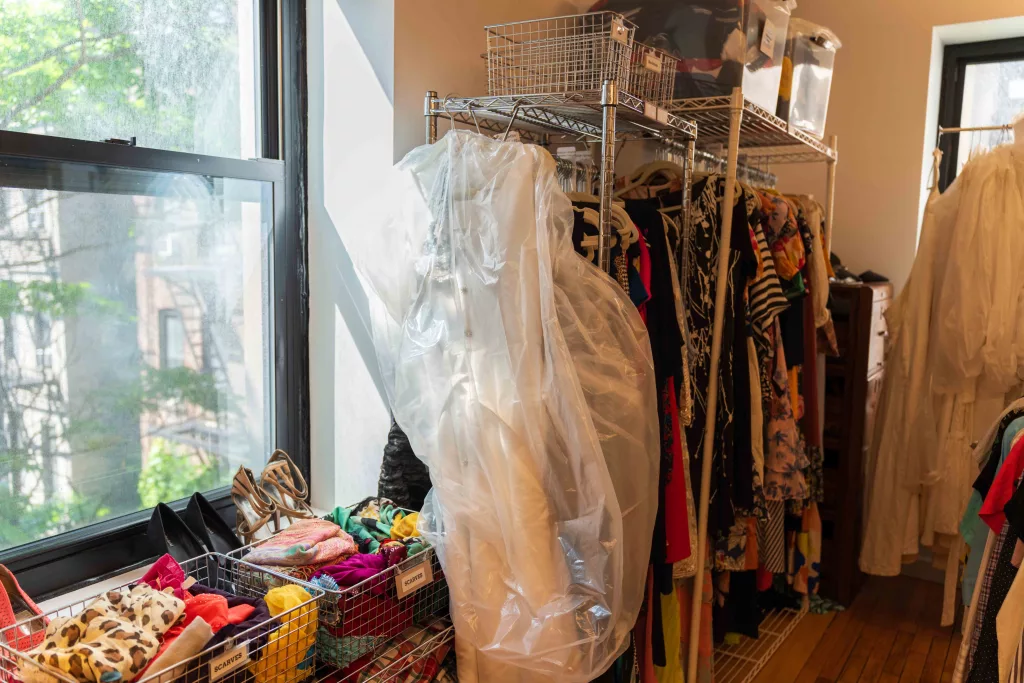
“We are helping them in a wide variety of ways, not just feeding and clothing them and giving them dignity and respect and kindness and warmth. A soft place to land,” Ilze Thielmann, the founder of the Little Shop of Kindness, said.
The shop, which collects and organizes donated clothes, acts like a boutique where migrant families make appointments to “shop” for free while guided by a volunteer of the organization. Hosting weddings materialized by chance, Thielmann said.
Val Coleman, a volunteer with the Little Shop of Kindness, and an officiant licensed in New York City, overheard a couple in the shop say they were looking for clothes to wear at their wedding. Coleman asked the bride where they would be getting married and she responded they would be getting married at City Hall. “I told them that I was a licensed officiant and that I would be willing to do it [the wedding] for free.”
Coleman has been performing weddings since 2008 and liked the idea of getting people married at the shop. However, because the shop is located inside a church, it is not permitted for anyone who is not a minister of the church to perform weddings in the building. “So what we do is go to Carl Schurz Park and have the wedding there and then we come to have a little reception for them at the Little Shop of Kindness,” she said.
When Coleman told the couples that she could marry them, they were thrilled because they would not only save the $25 cost to get married at City Hall but also get a personalized wedding. The process to write the ceremony can take more than 15 minutes because she works with a translator to gather the information and review all the necessary paperwork. Since March 25 of this year, she has officiated three weddings, with another wedding scheduled in the upcoming weeks.
“I always ask what they love about each other and ask to write down their own vows,” she said. For the second wedding she officiated, the bride wrote how much she loved her husband even though his snores would make the night seem never ending. “Their daughter was laughing hysterically,” Coleman said.
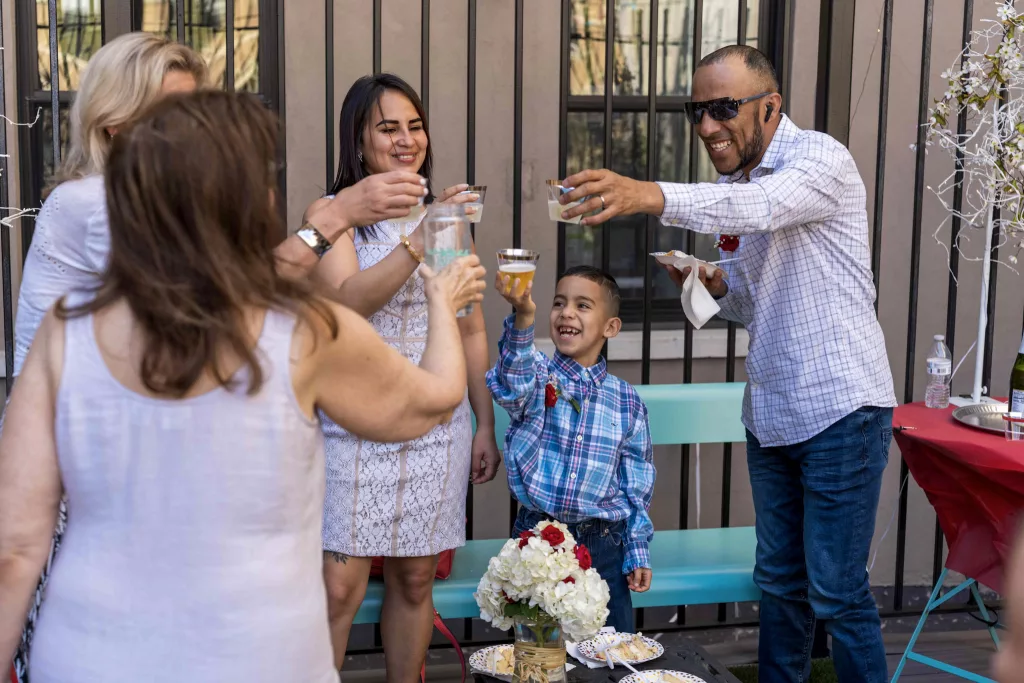
After the ceremony at the park, unbeknownst to the couples, Thielmann also prepares a ceremony at the shop where she decorates the space with flower arrangements, lights, and buys a cake and drinks.
TestPost3
On the afternoon of May 22, when newlyweds Zambrano and Rodriguez returned to the shop, they were surprised again to see the post-wedding-ceremony that awaited them.
Zambrano said he felt very grateful as he held a glass of white wine. “God always puts great people in front of us,” Zambrano repeated, as his son joined him with his glass of apple juice. “We suffered a lot on the journey,” he said. “We came without money, we would never have imagined that this would happen.”
Amidst all the joy that evening, the couple was missing the company of their 14-year-old daughter, who had ultimately decided to stay behind in Ecuador, with her grandmother, to finish her studies. The daughter messaged her parents during their wedding, asking to see photos.
“Even though she is strong and shows me a smile,” Zambrano said, “I know it is not the same that her parents are away from her.”
